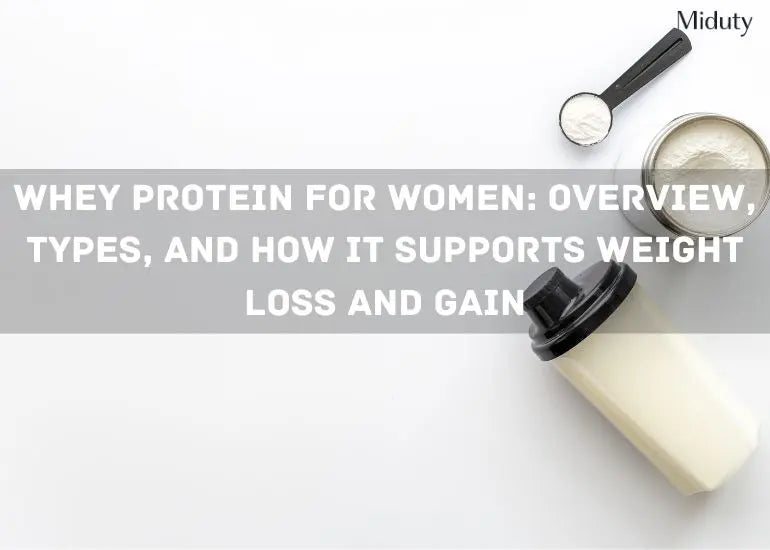
11 Reasons to Consume Multivitamin with Omega 3
Key Takeaways
1) Nutrient Deficiency Crisis: Modern diets often lack essential vitamins and minerals due to food processing and environmental factors, leading to common deficiencies in vitamins A, C, D, and minerals like iron and calcium, which can affect energy, immunity, and overall health.
2) Benefits of Multivitamins: Multivitamins help fill nutritional gaps, boost immunity, improve energy levels, and promote healthy skin, hair, and nails by providing essential nutrients like vitamin C, biotin, and B vitamins.
3) Importance of Omega-3: Omega-3 fatty acids support heart health, improve brain function, reduce inflammation, and boost mental health by regulating serotonin and reducing symptoms of depression and anxiety.
4) Multivitamin and Omega-3 Synergy: When combined, multivitamins and omega-3 supplements provide comprehensive support for overall wellness, covering essential nutrients and promoting heart, brain, and immune health.
5) Who Should Take These Supplements: Busy professionals, fitness enthusiasts, older adults, and people with restricted diets can benefit greatly from multivitamins and omega-3 supplements to maintain balanced nutrition and improve health outcomes.

In today's fast-paced world, it's no secret that our lifestyles have taken a toll on our health. With long working hours, stressful schedules, and the convenience of processed foods, our diets are often lacking the essential nutrients our bodies need to thrive.
Add to that the issue of contaminated and over-processed foods, and we're left with a nutritional gap that's difficult to fill through diet alone.
This is where multivitamins and omega-3 supplements come into play. They provide the missing nutrients, helping our bodies stay healthy and function optimally, even when our daily lives don't allow for the perfect diet.
In this blog, we'll dive into why multivitamins and omega-3 are essential for your overall wellness and why they should be part of your daily routine.
Table of Contents
1. Is Nutrient Deficiency Threatening Our Health?
2. Why Are Multivitamins Essential?
3. The Importance of Omega-3 Fatty Acids
4. How Multivitamin and Omega 3 Works?
5. Conclusion
6. FAQs
7. References
Is the Growing Nutrient Deficiency Crisis Threatening Our Health?

Modern diets often lack essential vitamins and minerals due to the over-processing of foods and the depletion of nutrients from the soil. Our meals are now filled with empty calories, low-quality ingredients, and artificial additives, leaving our bodies deficient in key nutrients. This isn't just an issue for people with poor eating habits—busy schedules and environmental factors make it hard to get everything we need from food alone. The result?
Many people are running low on vitamins like A, B complex, C, and D, and minerals like iron, calcium, and magnesium. These deficiencies can lead to fatigue, weak immunity, poor skin health, and a host of other health problems. Similarly, most people don't get enough omega-3 fatty acids, which play a critical role in brain function, heart health, and inflammation control.
Let's break down why these two supplements—multivitamins and omega-3 — are crucial for filling these gaps.
Read Also: 9 Benefits of Multivitamin Capsules/Tablets for Men and Women
Why Are Multivitamins Essential?
A multivitamin is a supplement that contains a combination of vitamins and minerals. While they can't completely replace a healthy diet, multivitamins are an effective way to ensure you get the basic nutrients your body needs daily. Here's how they can make a significant difference:
|
Benefits |
Description |
|
Boosting Immunity |
Multivitamins are packed with vitamins that support a healthy immune system, including vitamin C, vitamin D, and zinc. These nutrients play a critical role in strengthening your body's defenses against infections and illnesses. [1] In a world where we're constantly exposed to pollutants and pathogens, a stronger immune system is more important than ever. |
|
Supporting Energy Levels |
Feeling constantly fatigued? A lack of key B vitamins could be the culprit. Multivitamins contain B-complex vitamins (like B6, B12, and B9 (Methyl Folate), which are vital for converting food into energy. [2] When you're running low on these vitamins, you'll likely experience low energy and sluggishness. A daily multivitamin can help you stay energized throughout the day. |
|
Promoting Skin, Hair, and Nail Health |
Vitamins like biotin, vitamin E, and vitamin C are essential for maintaining healthy skin, hair, and nails. These vitamins protect your skin from damage, promote collagen production, and keep your hair and nails strong and shiny. If you're dealing with dry skin or brittle hair, a multivitamin could be the solution. [3] |
|
Filling Nutritional Gaps |
Even if you try to eat a balanced diet, it's easy to miss out on certain nutrients. Multivitamins ensure that your body gets a wide range of vitamins and minerals, preventing deficiencies that can lead to long-term health problems. |
|
Improves Bone Health |
Multivitamins often contain key nutrients like calcium, vitamin D, and magnesium, which are essential for maintaining strong and healthy bones. Vitamin D, in particular, helps the body absorb calcium, which is necessary for bone density and preventing conditions like osteoporosis as you age. A daily multivitamin can help support bone health, especially for individuals who don't get enough calcium or sunlight. |
|
Supporting Mental Clarity & Mood |
Certain vitamins, such as B vitamins, vitamin D, and magnesium, play a significant role in brain health. These nutrients help improve cognitive function, reduce brain fog, and support mood regulation. Regularly taking multivitamins may contribute to improved focus, memory, and even a balanced mood, which is particularly important during stressful periods. |
|
Enhances Heart Health |
Multivitamins that include omega-3 fatty acids, vitamin E, and folic acid are beneficial for heart health. These nutrients work together to support healthy cholesterol levels, improve circulation, and reduce the risk of heart disease. Regular use of multivitamins can help keep your cardiovascular system functioning at its best. |
The Importance of Omega-3 Fatty Acids

Now, let's talk about omega-3 fatty acids—the healthy fats that your body can't produce on its own. Omega-3s are typically found in fatty fish like salmon, but if you're not eating enough fish, an omega-3 supplement can help. Here's why they are so important:
1. Supporting Heart Health
Omega-3s are known for their heart-protective benefits. They help reduce triglycerides, lower blood pressure, and reduce the risk of heart disease. Studies show that people who consume omega-3 regularly have a lower risk of heart attacks and strokes, making them a key player in cardiovascular health. [4]
2. Improving Brain Function
Your brain thrives on omega-3 fatty acids, particularly DHA, one of the key components in omega-3 supplements. DHA supports brain cell structure and function, which means it can help improve memory, concentration, and overall cognitive health. Omega-3s have also been linked to a reduced risk of mental decline and conditions like Alzheimer's. [5]
3. Reducing Inflammation
Chronic inflammation is at the root of many health issues, including arthritis, heart disease, and autoimmune conditions. Omega-3s help reduce inflammation in the body, promoting joint health and reducing pain in those who suffer from inflammatory conditions. [6]
Read Also: How to Reduce Inflammations Permanently I Anti Inflammatory Diet
4. Boosting Mental Health
Several studies suggest that omega-3 fatty acids can help reduce symptoms of depression and anxiety. Since omega-3s play a role in serotonin regulation (a key neurotransmitter for mood), taking omega-3 supplements may help balance your mood and reduce stress. [7]
Multivitamin and Omega-3: A Perfect Wellness Duo
Together, multivitamins and omega-3 supplements create a powerful combination that covers all your nutritional bases. While the multivitamin ensures that you're getting the essential vitamins and minerals your body needs for daily functioning, omega-3 supplements take care of your heart, brain, and overall inflammation.
Try Miduty's Multivitamin
Who Should Consider Taking These Supplements?
1) Busy Professionals: If you're a busy professional with a packed schedule and little time to plan nutritious meals, it can be challenging to get all the vitamins and minerals your body needs. In such cases, multivitamins and omega-3 supplements can serve as a lifesaver, ensuring that even on your busiest days, you're still supporting your health.
2) Fitness Enthusiasts: For those who are fitness enthusiasts or work out regularly, supplements can be particularly beneficial. Omega-3s help reduce inflammation and muscle soreness, speeding up recovery and allowing you to perform at your best during each workout.
3) Older Adults: As we age, our bodies have a harder time absorbing certain vitamins and minerals, making multivitamins essential. Omega-3s are also critical for maintaining cognitive and heart health.
4) People with Restricted Diets: For people with restricted diets—whether you're vegetarian, vegan, or have food allergies—it can be particularly hard to get all the necessary nutrients from food alone. Omega-3s and certain vitamins are commonly missing from these diets, making supplements a valuable addition.
Conclusion
In a world where our diets fall short of providing the nutrients we need, multivitamins and omega-3 supplements are the perfect daily companions for better wellness. They fill the gaps left by modern food choices, support your heart and brain health, boost your immunity, and help reduce stress and inflammation.
Whether you're juggling a busy lifestyle, staying active, or simply looking to improve your overall health, these supplements are your daily must-haves for long-term well-being.

Frequently Asked Questions on Multivitamins and Omega - 3
Q1. Can I take multivitamins and omega-3 together?
Yes, multivitamins and omega-3 supplements can be taken together. In fact, combining them supports both general health and specific needs like heart and brain function.
Q2. How often should I take omega-3 supplements?
You can take omega-3 supplements daily, especially if you're not consuming fatty fish regularly. It's recommended to follow the dosage instructions on the supplement label.
Q3. Are there any side effects of taking multivitamins?
Most people can take multivitamins without any side effects. However, taking more than the recommended dose may lead to issues like stomach upset or headaches, so always stick to the suggested dosage.
Q4. Can I take vitamin A and omega 3 together?
Yes, you can take vitamin A and omega-3 together. There are no known negative interactions between them, and they can both support overall health. However, it's always a good idea to consult with a healthcare professional before starting any new supplements.
Q5. Can we take multivitamin and omega 3 together?
It's generally better to take multivitamins and omega-3s with food to enhance absorption and reduce the risk of stomach upset. Taking them on an empty stomach might not be harmful for everyone, but food can help maximize their benefits.

References








